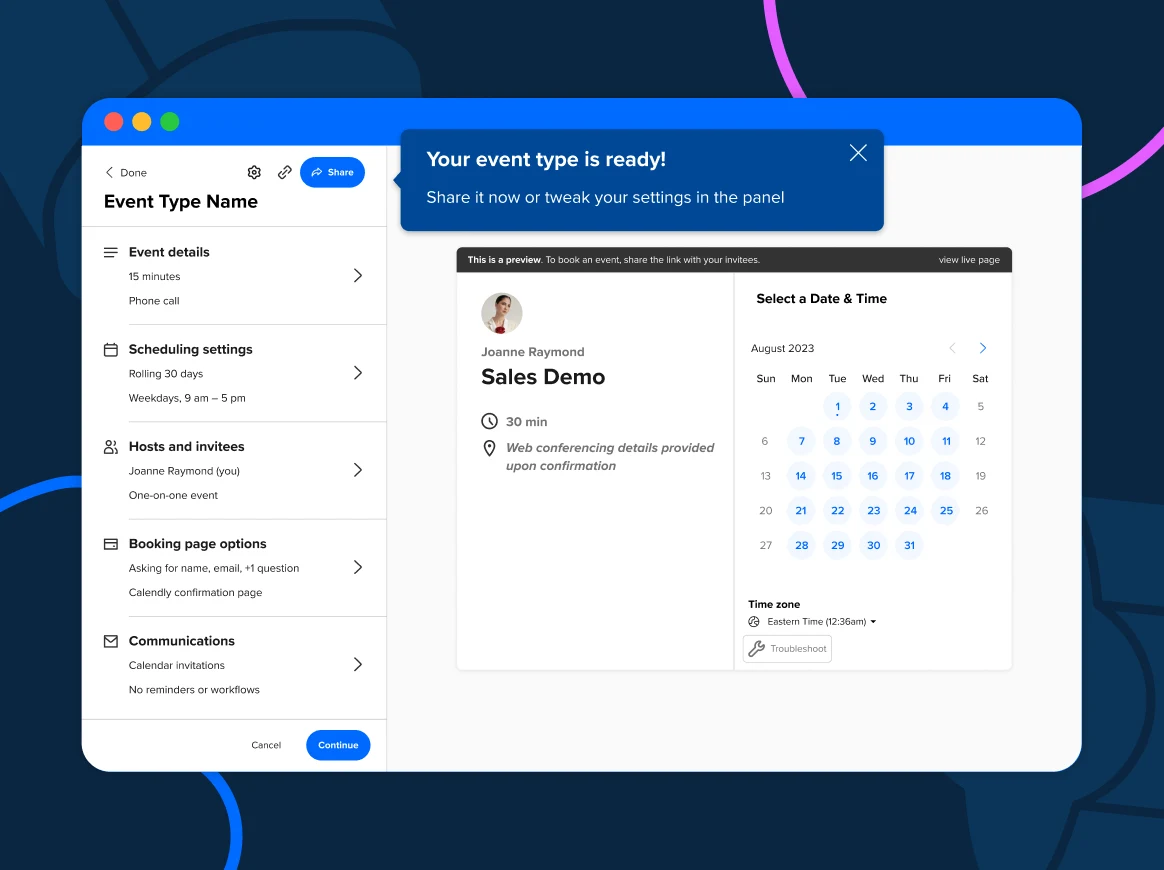English
English
The Calendly Blog
Meet the refreshed Calendly — it’s easier than ever to navigate, schedule meetings, and update your availability
Latest Articles
Looking for something specific? Check out the filters below!
Category
Product
Sales & Success
Recruiting
Company News
Productivity
Topic
Pro tips
Customer Success
Integrations
Using Calendly
Teams
Workflows
Sales
Marketing
Software
Scheduling etiquette
Education
Don't leave your prospects, customers, and candidates waiting
Calendly eliminates the scheduling back and forth and helps you hit goals faster. Get started in seconds.
Calendly eliminates the scheduling back and forth and helps you hit goals faster. Get started in seconds.
